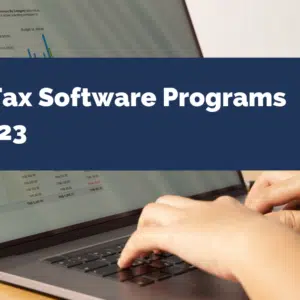It’s getting close to tax-filing season. It’s not everyone’s favorite holiday (unless you’re a nerdy accountant, maybe), but one thing’s for sure: being in business for yourself allows you a lot of tax write-offs that can save you money.
You might already be aware of these if you’re an experienced business owner. But due to the pandemic, there’s likely a greater number of people who are self-employed this year. Either way, here’s your chance to get some money back.
Table of Contents
Who’s Legally Considered “Self-Employed”?
In order to claim self-employment tax breaks, you need to be self-employed. Under IRS tax rules, that includes:
- S-corps
- Partnerships
- Sole proprietors
- Independent contractors
- LLCs and other business designations where you’re the business owner
It’s important to note that you can be a business owner and be employed by someone else. If you have a day job and freelance as a side hustle, for example, you’re still considered self-employed due to your side gig despite having a boss at a different organization.
Unfortunately, this cuts out remote workers who have employers. Even though you might work from home now, you can only claim the home office deduction (more on this below) if you’re actually earning money through your own business.
How Do Deductions Work?
Almost all of the tax goodies for small businesses come in the form of a tax deduction. That’s why it’s important to understand how they work — luckily, you don’t need to be a tax expert. You just need a simple calculator.
Most tax incentives come in two forms: tax credits and tax deductions. Tax credits reduce your tax bill dollar-for-dollar. So if you get a $500 tax credit, for example, you can lower your tax bill by $500.
Tax deductions, on the other hand, only reduce the amount of your business income that’s subject to tax. To calculate how much that actually means to your wallet at the end of the day, you’ll need to know what tax bracket you’re in. For “pass-through entities” like sole proprietors, LLCs, etc., your business income is taxed at the same rate as your personal income tax bracket.
To figure out the value of a business tax deduction, just multiply the amount of the deduction by your tax bracket. So, for example, if you claim a $1,000 deduction for your home office and you’re in the 12% tax bracket, you’ll shave $120 off your tax bill when the dust settles. Unfortunately, this means that tax deductions aren’t quite as valuable for lower-income folks because your tax bracket isn’t as high as a higher-income person.
15 Write-Offs All Self-Employed Workers Should Know
If you qualify as a self-employed worker under the IRS’ definition and own your own business, here are the top tax incentives to remember when filing.
1. Home Office Deduction
Let’s start with the most popular tax break for self-employed people: the home office deduction. You can claim this regardless of whether you’re a renter or a homeowner. You’ll need to pass two bars in order to qualify, though: first, your home must be primarily where you do business, and second, your home office will need to be dedicated for the exclusive use of your business.
You have two options for how to calculate this:
- Regular Method. You’ll need to do the math to see what your deduction might be, depending on factors like your mortgage interest, home depreciation, insurance, etc.
- Simplified Method. This allows you to claim a flat-rate deduction of $5 per square foot (300 square feet maximum), with no need for math beyond figuring out the size of your office.
2. Utilities
If you work from home, you can also claim a portion of your utilities as a tax deduction. According to the IRS, that includes things like your trash, electricity, internet, gas, and even cleaning services.
You’ll use the percentage of your home that your office takes up. For example, if your home office is 8% of your home, then you can claim 8% of your utility bills as a deduction.
3. Qualified Business Income Deduction
Another gem is the Qualified Business Income (QBI) Deduction, introduced in 2017 and ending in 2025 (unless Congress changes it, that is). This lets you deduct up to 20% of your “qualified business income” as a self-employed individual.
What actually counts as “qualified” business income? Good question.
That’s generally most of the money you earn in your business, minus any deductions or business losses. Certain things don’t count, such as interest income from your business savings account or any capital gains or losses from investing in stocks. For a full list, see the IRS’ QBI resource.
4. Startup Costs
So many people were forced into self-employment, whether they wanted it or not, in 2020. If that’s you, take heart: You can deduct up to $5,000 in startup costs and $5,000 in organizational costs as long as your business costs less than $50,000 to start.
So whether you need to buy a new laptop, have a lawyer draft agreements and contracts, file business paperwork, or other expenses to open your business, you should be able to get at least some of the expense back.
5. Health Insurance Premiums
Finding health insurance that doesn’t give you a heart attack is one of the major challenges of self-employment, especially if you don’t have a spouse with access to a workplace plan.
A small consolation is that you might get some of that money back in the form of a deduction for paid premiums toward medical, dental, and even qualified long-term care insurance plans. This even includes health insurance that you purchased to cover your family members, including your kids and your spouse.
However, there are two big catches: first, your business must have made a profit that year. Second, you can only take this deduction if you aren’t eligible for an employer-sponsored health care plan, whether from a day-job employer or even from a spouse’s employer.
6. Liability Insurance Premiums
Speaking of insurance, another big bummer for self-employed workers is paying for liability insurance. The truth is that almost all self-employed people should purchase some sort of liability insurance since they’re doing work for money and that can easily lead to disputes.
If you run a dog grooming business, for example, you might need general liability insurance to protect yourself against unhappy pet owners. Even if you’re a digital entrepreneur working from home, it’s a good idea to purchase media liability or professional liability insurance. Either way, you can deduct these premiums from your taxes.
7. Materials for the Goods That You Sell
Crafty business owners rejoice! You can deduct the cost of the materials you buy to assemble the items you sell. To take this deduction, though, you’ll need to tally your starting and ending inventories each year. It’s not as simple as just claiming your expenses for the materials you purchased.
So if you have an ugly Christmas sweater business, for example, you can deduct the cost of the yarn and tools used to make them. This applies to non-craft-related businesses, too, such as eBay and Amazon resellers, publishers, plant nurseries, and more.
8. Self-Employment Tax Deduction
Another reality of being self-employed is you’ll need to pay twice the amount of FICA taxes (Medicare and Social Security). Normally, your employer pays for half, but since you’re your own employer, you’ll need to pick up the tab for that share, too. The good news is that you can at least deduct the “employer” portion of self-employment taxes (i.e., half of the total amount) that you pay.
9. Retirement Contributions
If you contribute to a retirement plan for self-employed people such as a SEP IRA or Solo 401(k), and you contribute to it during the year, you can deduct those contributions from your income.
This is similar to how the deduction for a Traditional IRA works. Unfortunately, if you work for an employer, you can’t deduct your contributions to your workplace plan, such as your regular 401(k) or 403(b). The rules for how the deduction works can get a little wonky though, especially if you have employees, so it’s a good idea to work with a CPA to claim this deduction.
10. Car Mileage
Rideshare drivers here’s one for you! If you use your personal car to drive around for your business, you can deduct the cost on either a per-mileage basis or by keeping track of your car expenses. The mileage rate changes every year: for example, for 2023, it’s 65.5 cents per mile.
Taking the standard mileage rate is probably easiest, and you can either keep track of your mileage in a physical log book you keep in your car, or through one of several apps, like MileIQ or SherpaShare, just for this purpose.
11. Travel Expenses
In addition to driving around, you might travel to industry conferences or meet clients as a part of your business. You can deduct the cost of these travel expenses, such as lodging, transportation, meals, baggage fees, etc.
Sometimes it’s easy for the lines to blend between business and personal in this category. You’re not allowed to deduct any entertainment costs (even if you’re taking clients out to a Broadway show, for example). This means if you travel somewhere exotic for a work conference and stay a few extra days for leisure, you can’t deduct any expenses on those personal vacation days.
12. Association Memberships
It’s especially important to stay active and network with other people if you’re self-employed. That’s where a lot of membership dues come in, and sometimes these can be substantial depending on what industry you’re in.
You can deduct the cost of any association memberships, though, as long as it’s a part of your business. For example, if you’re an independent board game designer, you can write off your membership dues in the Game Manufacturer’s Association.
13. Advertising
Did you pay for ads on Facebook, Instagram, Twitter, Pinterest, or another social media site? If so — or if you paid for any other advertising at all, even to put your business in an old-fashioned phone book or roadside billboard — you can deduct these expenses from your income.
14. Office Supplies and Software
Whether you’re a service-based business or a product-based business, you’ll still need to have an office so that you can manage your company. You’ll probably need supplies like pens, printers, computers, and software to perform tasks like tracking your time, accounting, drafting your business budget, and more. You’re eligible to deduct all of these expenses from your income.
You can also deduct equipment and furniture for your business this way. You might see “Section 179” while doing your research. This lets small businesses claim these types of expenses as a one-off deduction in the same year the items are purchased (as opposed to writing off depreciation on these purchases slowly over the next few years).
If you really need a Greek-style thinking couch and you can make a case to the IRS that it’s for your business use, this can be a valuable deduction, too.
15. Subscriptions, Books, Magazines, Courses, and Other Education
There’s no one business playbook that applies to all small business owners. Even though the principles of running a business are all the same, each business is unique. Whether your business is baking pretzels, writing articles, landscaping, or brewing beer, you’ll need to keep up to date in your industry by reading books, subscribing to trade magazines, and taking courses.
Some of these costs can add up big time. If you need to travel across the country to attend a training workshop, for example, even just the enrollment fee can be huge. And although subscriptions are generally smaller purchases, over time, they can add up to a lot of money. Luckily, you can write off these expenses as deductions from your income.
Bottom Line – 15 Tax Write-Offs for Self-Employed Workers
There’s no doubt that running your own business is stressful. Even just perusing this list, you might be overwhelmed with thinking about how exactly these deductions all work, and that’s valid.
There are a lot of deductions, and some of them have specific rules for how you can claim them, such as the home office deduction. It’s useful to know what these deductions are so you can plan for how to use them in your business.
We still recommend working with a CPA to guide you through the tax rules for these write-offs so that you can focus on what really matters to your business — the work that brings in cash.







